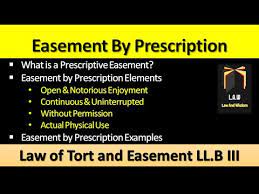A power of attorney is an important legal document that anyone in estate planning will use at some point. It allows a real estate owner to delegate his powers, entrust them to the capable hands of a trusted agent or advisor, and free his hand. You can execute a POA in favour of multiple attorneys or a company. Can these agents in a power of attorney transfer money to themselves?
Situations often arise where the supposed trusted agent or advisor mismanages the monies and assets of the estate under his control. He fails to act on behalf of the person who executed the power of attorney and abuses his powers. It is important to note the extent of the powers of an attorney with regard to the estate money and assets. Can money or assets transferred by attorneys to themselves be reversed or overridden? In this article, we shall detail limits of attorney over your money or assets. Also, we shall detail options open to a principal to override such illicit transfers of money or assets. You can override the power of attorney itself, as dealt with in our previous article.
What is a POA:
A power of attorney is a legal document written by an entity called ‘a principal’ in favour of another entity called ‘an attorney’ authorizing the attorney to act on his behalf or stead over his real estate or financial transactions.
A power of attorney is important as sometimes, a principal may become unable to perform his functions over his real estate by reason of absence, declining health, or in the case of an injury or disability, mental capacity among others. It is important he delegates his powers to take decision or action in the hands of a trusted advisor.
Principal
The individual or entity that donates the power of attorney and authorizes an agent to act on their behalf is known as the Principal. He is also referred to as the donor or grantor of a POA.
Attorney:
The attorney is also known as the agent or the attorney-in-fact or the done or grantee. The attorney is the designated individual or entity who is legally authorized to act on behalf of the principal.
Legally, the agent has a mandate to act in the best interest of the principal. The law imposes a fiduciary relationship between him and the principal and requires that he remains accountable to the principal.
Two Types of power of Attorney:
General or Limited Power of Attorney:
The principal must be a person of sound mind and mental capacity. The POA grants extensive or specific powers to the attorney. In GPOA, The attorney has unlimited powers, subject only to the supervision or overriding powers of principal.
The attorney can perform most functions including;
- Buying assets,
- Interest or policies,
- Receive gifting from trust,
- Settle or compromise financial or legal claims,
- Manage your business operations as well as your real estate transactions.
In Limited Power of Attorney, the powers of the attorney stops at performing specified tasks such as signing of documents etc.
Durable or Non-Durable Power of Attorney:
The powers of the attorney are to perform certain functions that the principal cannot perform by reason of disability or mental incapacity. The power of attorney remains while the disability exists or the principal dies. Powers given under such a power of attorney include the signing of documents, managing financial and real estate transactions and advisory role on healthcare decisions.
In addition to these two types, there is a special power of attorney relating to medical care known as a Medical POA. It is an advance directive document prepared by an aged principal entrusting a trusted advisor to control decisions over their end of life treatment.
Power of Attorney Rights and Limitations:
Even if your power of attorney form grants broad powers, your Agent cannot:
- Change or alter your will.
- Act under the power of attorney after your death.
- Transfer power of attorney to another person.
Aside the above limitations, the following questions arise on the powers of agents in a power of attorney:
Can you appoint two people as agents in a power of attorney?
Yes, you can appoint more than one agent in your power of attorney. You can give them broad powers or designate functions to them or even assign portions of estate for them to manage. However, the power of attorney should state whether the agents have full, independent power or act jointly or upon a quorum.
You should also name a successor attorney in your document, should anything happen to your chosen appointee.
Can agents in a power of attorney transfer money to themselves:
Yes, agents in a power of attorney can transfer money to themselves on the basis of the power of attorney. They can also pay themselves. They, however, need authorization in the power of attorney documents before they can do so. That is, an agent can only transfer money with the consent of the principal. The powers granted to an attorney may include the power to take a percentage of the money accruing to an estate as a commission or fee for running the estate. Where the POA provides for such powers, agents can transfer such money to themselves.
Can agents in a power of attorney gift money to themselves?
No. Agents in a power of attorney cannot gift money to themselves. An attorney in a power of attorney must be accountable to the principal. Also, the law expects that he act in the best interest of the principal. If the agent gifts money to himself, the law mandates that he disclose the gift to the principal. Importantly, the principal has a right to demand a return of such money.
Can an attorney in a power of attorney take money for personal use?
No. Agents can only take money as authorized in the power of attorney. Often, the principal authorizes an agent in the power of attorney to take commissions. Aside from such commissions, an agent should duly report to the principal any personal money he takes from the real estate.
Can agents in a power of attorney borrow money?
No, unless the principal authorized the agent in the power of attorney to borrow money. The agent can only act within the ambit of his powers under the power of attorney.
Options open to you where agents in a power of attorney can transfer money to themselves:
Generally, an attorney cannot rely on a power of attorney to transfer funds, possessions, real estate, or any other assets from the principal to himself. States generally have laws against this form of self-dealing, though not all of them. Generally speaking, the law treats it as a fraudulent conveyance. The grantee has the right to enforce these laws in civil and criminal court. Obviously, the courts, if practicable, will have such transactions reversed. If the principal is unable to do so due to his own absence, incapacity, lack of legal capacity, or other reasons, third parties can do so. The third parties include his family members and children or any person interested in the estate.
A power of attorney, cannot likewise gift the principal’s assets to the attorney’s spouse or child. In general, a court will be skeptical of any superfluous or unjustified transfer made under a power of attorney, particularly if the principal was not aware of the transfer or was incapable of understanding it.
The principal or his representative can petition the attorney in court and have the transfer declared null and void. The title would stay in the principal’s name if the principal succeeded in having that transfer declared void. It does not even matter that the attorney sold the asset. In that instance, the court will likely set aside the actual sale. Also, the agent will be liable to pay damages and costs to the principal.
A Principal can chose to ratify or approve a transfer of money or assets by attorneys to themselves or their spouse or children. Where he does so, the transfer remains valid.
Conclusion:
Often times, powers of attorneys instruct attorneys to take percentages or specific money or assets from the estate for themselves as commissions or payments. Attorneys are free to draw such payments from themselves. Aside from that, the law frowns on attorneys in a power of attorney transferring money or assets of the estate to themselves, their spouses, or their children. The principal may apply to a court to reverse the transaction. It is very important to provide specific and written instructions or authorization as regards transfer of money or assets by attorneys to themselves in a power of attorney.



